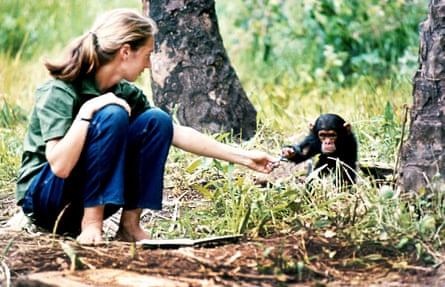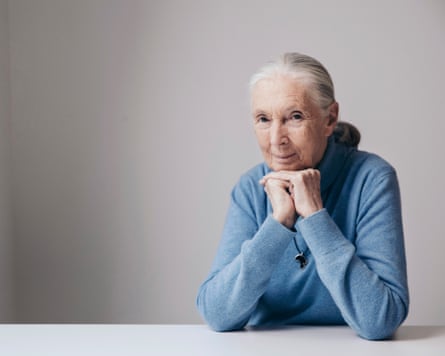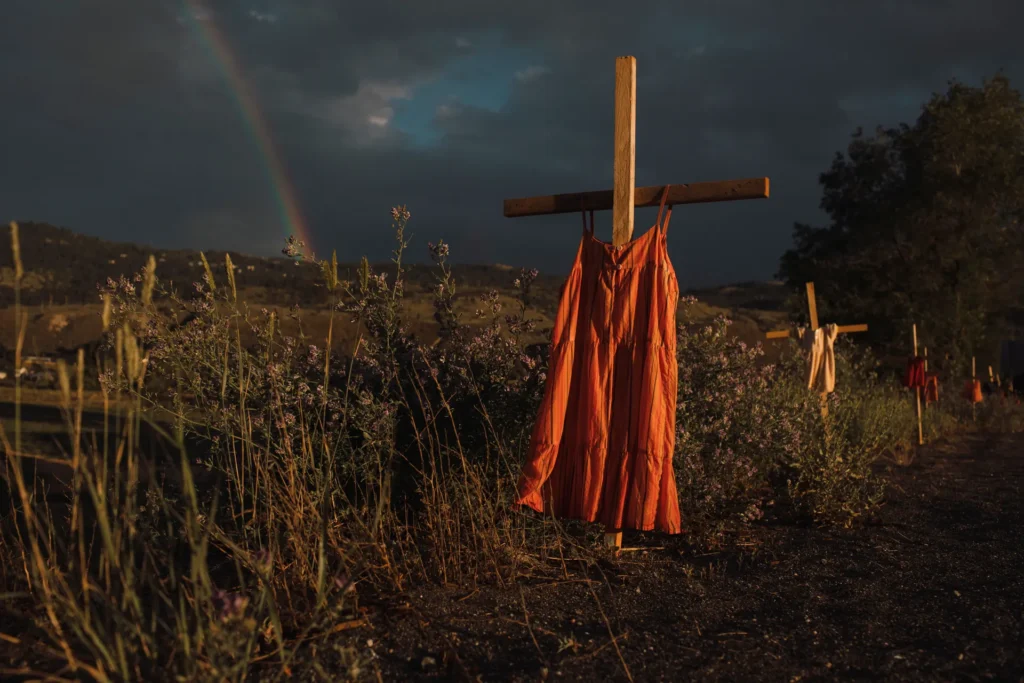https://pluralistic.net/2022/12/23/semipermeable-membranes/
No matter how benevolent a dictatorship is, it’s still a dictatorship, and subject to the dictator’s whims. We must demand that the owners and leaders of tech platforms be fair and good – but we must also be prepared for them to fail at this, sometimes catastrophically.
That is, even if you trust Tim Cook to decide what apps you are and aren’t allowed to install – including whether you are allowed to install apps that block Apple’s own extensive, nonconsensual, continuous commercial surveillance of its customers – you should also be prepared for Cook to get hit by a bus and replaced by some alt-right dingleberry.
What happens next is a matter of technology and law. It’s a matter of whether you have to give up your media and your apps and your data to escape the no-longer-benevolent dictatorship. It depends on whether the technology is designed to let you move those things, and whether the law protects you from tech companies, or whether it protects tech companies from you, by criminalizing jailbreaking, reverse engineering, scraping, etc.
As thorny as this is, it’s even harder when we’re talking about social media, because it’s social. Sociability adds a new and pernicious switching cost, when we hold each other hostage because we can’t agree on when/whether to go, and if we do, where to go next. When the management of your community goes septic, it can be hard to leave, because you have to leave behind the people who matter to you if you do.
We’ve all been there: do you quit your writers‘ circle because one guy is being a jerk? Do you stop going to a con because the concom tolerates a predator? Do you stop going to family Thanksgiving because your racist Facebook uncle keeps trying to pick a fight with you? Do you accompany your friends to dinner at a restaurant whose owners are major donors to politicians who want to deport you?
This collective action problem makes calamity of so long life. At the outer extreme, you have the families who stay put even as their governments slide into tyranny, risking imprisonment or even death, because they can’t bear to be parted from one another, and they all have different views of how bad the situation really is:
https://www.theatlantic.com/books/archive/2022/12/the-oppermanns-book-holocaust-nazi-fascism/672505/
The corporate person is a selfish narcissist, a paperclip-maximizing artificial lifeform forever questing after its own advantage. It is an abuser. Like all abusers, it is keenly attuned to any social dynamic that it can use to manipulate its victims, and so social media is highly prized by these immortal colony-organisms.
You can visit all manner of abuses upon a social network and it will remain intact, glued together by the interpersonal bonds of its constituent members. Like a kidnapper who takes your family hostage, abusers weaponize our love of one another and use it to make us do things that are contrary to our own interests.
In „Stop Talking to Each Other and Start Buying Things: Three Decades of Survival in the Desert of Social Media,“ Cat Valente is characteristically brilliant about this subject. It is one of the best essays you’ll read this month:
https://catvalente.substack.com/p/stop-talking-to-each-other-and-start
Valente is on the leading edge of creators who were born digital – whose social life was always online, and whose writing career grew out of that social life. In 2009, she posted her debut novel, „The Girl Who Circumnavigated Fairyland in a Ship of Her Own Making“ to the web for free. Two years, and many awards, later, Macmillan brought it out in hardcover:
„Stop Talking to Each Other“ is a memoir wrapped around a trenchant, take-no-prisoners critique of all the robber-barons who’ve made us prisoners to one another and fashioned whips out of our own affection for one another and the small pleasures we give each other.
It begins with Valente’s girlhood in the early 1990s, where Prodigy formed a lifeline for her lonely, isolated existence. Valente – a precocious writer – made penpals with other Prodigy users, including older adults who assumed they were talking to a young adult. These relationships expanded her world, uplifting and enriching her.
Then, one day, she spotted a story about Prodigy in her dad’s newspaper: „PRODIGY SAYS: STOP TALKING TO EACH OTHER AND START BUYING THINGS.“ The headline floored her. Even if Valente wanted to buy the weird grab-bag of crap for sale at Prodigy in 1991, she was a 12 year old and had no way to send internet money to Prodigy. Also, she had no money of any sort.
For her, the revelation that the owners of Prodigy would take away „this one solitary place where I felt like I mattered“ if she „didn’t figure out how to buy things from the screen“ was shocking and frightening. It was also true. Prodigy went away, and took with it all those human connections a young Cat Valente relied on.
This set the pattern for every online community that followed: „Stop talking to each other and start buying things. Stop providing content for free and start paying us for the privilege. Stop shining sunlight on horrors and start advocating for more of them. Stop making communities and start weaponizing misinformation to benefit your betters.“
Or, more trenchantly: „Stop benefitting from the internet, it’s not for you to enjoy, it’s for us to use to extract money from you. Stop finding beauty and connection in the world, loneliness is more profitable and easier to control. Stop being human. A mindless bot who makes regular purchases is all that’s really needed.“
Valente traces this pathology through multiple successive generations of online community, lingering on Livejournal, whose large community of Russian dissidents attracted Russian state-affiliated investors who scooped up the community and then began turning the screws on it, transforming it into a surveillance and control system for terrorizing the mutual hostages of the Russian opposition.
Valente and her friends on the service were collateral damage in the deliberate enshittification of LJ, and the Russian dissidents had it worse than they did, but it was still a painful experience. LJ was home to innumerable creators who „grew audiences through connections and meta-connections you already trusted.“
Most importantly, the poisoning of LJ formed a template, for how to „[take] apart a minor but culturally influential community and develop techniques to do it again, more efficiently, more quickly, with less attention.“
It’s a template that has been perfected by the alt-right, by the Sad Puppies and the Gamergaters and their successor movements.
These trolls aren’t motivated by the same profit-seeking sociopathy of the corporate person, but they are symbiotic with it.
Valente lays out the corporate community’s lifecycle:
I. Be excited about the internet, make a website!
II. Discover that users are uninterested in your storefront, add social features.
III. Add loss-leaders to „let users make their own reasons to use the site“ (chat, blogs, messaging, etc), and moderate them „to make non-monster humans feel safe expressing themselves and feel nice about site.“
IV. The site works, and people „[use] free tools to connect with each other and learn and not be lonely and maybe even make a name for themselves sometimes.“
V. The owners demand that users „stop talking and start buying things.“
VI. Users grow disillusioned with a site whose sociability is an afterthought to the revenue-generation that is supposed to extract all surplus value from the community they themselves created.
VII. The owners get angry, insult users, blanket the site with ads, fire moderators, stoke controversy that creates „engagement“ for the ads. They sell user data. They purge marginalized community that advertisers don’t like. They raise capital, put the community features behind a paywall, and focus so hard on extraction that they miss the oncoming trends.
VIII. „Everyone is mad.“
IX. „Sell the people you brought together on purpose to a large corporation, trash billionaire, or despotic government entity who hates that the site’s community used those connective tools to do a revolution.“
X. The people who „invested their time, heart, labor, love, businesses and relationships“ are scattered to the winds. Corporate shareholders don’t care.
XI. Years later, the true story of how the site disintegrated under commercial pressures comes out. No one cares.
XII. The people who cashed out by smashing the community that created their asset are now wealthy, and they spend that wealth on „weird right-wing shit…because right-wing shit says no taxes and new money hates taxes.“
This pattern recurs on innumerable platforms. Valente’s partial list includes „Prodigy, Geocities, collegeclub.com, MySpace, Friendster, Livejournal, Tumblr,“ and, of course, Twitter.
Twitter, though, is different. First, it is the largest and most structurally important platform to be enshittified. Second, because it was enshittified so much more abruptly than the smaller platforms that preceded it.
But third, and most importantly, because Twitter’s enshittification is not solely about profit. Whereas the normal course of a platform’s decline involves a symbiosis between corporate extraction and trollish cruelty, the enshittification of Twitter is being driven by an owner who is both a sociopathic helmsan for a corporate extraction machine and a malignant, vicious narcissist.
Valente describes Musk’s non-commercial imperatives: „the yawning, salivating need to control and hurt. To express power not by what you can give, but by what you can take away…[the] viral solipsism that cannot bear the presence of anything other than its own undifferentiated self, propagating not by convincing or seduction or debate, but by the eradication of any other option.“
Not every platform has been degraded this way. Valente singles out Diaryland, whose owner, Andrew, has never sold out his community of millions of users, not in all the years since he created it in 1999, when he was a Canadian kid who „just like[d] making little things.“ Andrew charges you $2/month to keep the lights on.
Valente is right to lionize Diaryland and Andrew. In fact, she’s right about everything in this essay. Or, nearly everything. „Almost,“ because at the end she says, „the minute the jackals arrive is the same minute we put down the first new chairs in the next oasis.“
That’s where I think she goes wrong. Or at least, is incomplete. Because the story of the web’s early diversity and its focus on its users and their communities isn’t just about a natural cycle whereby our communities became commodities to be tormented to ruination and sold off for parts.
The early web’s strength was in its interoperability. The early web wasn’t just a successor to Prodigy, AOL and other walled gardens – it was a fundamental transformation. The early web was made up of thousands of small firms, hobbyists, and user groups that all used the same standard protocols, which let them set up their own little corners of the internet – but also connected those communities through semi-permeable membranes that joined everything, but not in every way.
The early web let anything link to anything, but not always, which meant that you could leave a community but still keep tabs on it (say, by subscribing to the RSS feeds of the people who stayed behind), but it also meant that individuals and communities could also shield themselves from bad actors.
The right of exit and the freedom of reach (the principle that anyone can talk to anyone who wants to talk to them) are both key to technological self-determination. They are both imperfect and incomplete, but together, they are stronger, and form a powerful check on both greed and cruelty-based predation:
Small wonder that, from the beginning, the internet has been a fight between those who want to build a commons and those who wish to enclose it. Remember when we were all angry that the web was disappearing into Flash, the unlinkable proprietary blobs that you couldn’t ad-block or mute or even pause unless they gave you permission?
Remember when Microsoft tried, over and over again, to enclose the internet, first as a dial-up service, then as a series of garbage Windows-based Flash-alikes. Remember Blackbird?
https://en.wikipedia.org/wiki/Blackbird_(online_platform)
But standard protocols exert powerful network effects on corporations. When everyone is adhering to a standard, when everything can talk to everything else, then it’s hard to lure users into a walled garden. Microsoft coerced users into it by striking bargains with buyers at large companies to force its products on all their employees, and then by breaking compatibility with rival products, which made it hard for those employees to use another vendor’s products in their personal lives. Not being able to access your company email or edit your company documents on your personal device is a powerful incentive to use the same product your company uses.
Apple, meanwhile, seduced users into its walled garden, promising that it would keep them safe and that everything would just work, and then using its power over those customers to gouge them on dongles and parts and repair and apps.
Both companies – like all corporations – are ferocious rent-seekers, but both eventually capitulated to the internet – bundling TCP and, eventually, browsers with their OSes. They never quit trying to enclose the web, via proprietary browser extensions and dirty tricks (Microsoft) or mobile lock-in and dirty tricks (Apple). But for many years, the web was a truly open platform.
The enclosure of online communities can’t be understood without also understanding the policy choices that led to the enclosure of tech more broadly. The decision to stop enforcing antitrust law (especially GWB’s decision not to appeal in the Microsoft antitrust case) let the underlying platforms grow without limits, by buying any serious rival, or by starving it out of existence by selling competing products below cost, cross-subidizing them with rents extracted from their other monopoly lines.
These same policies let a few new corporate enclosers enter the arena, like Google, which is virtually incapable of making a successful product in-house, but which was able to buy others‘ successes and cement its web dominance: mobile, video, server management, ad-tech, etc.
These firms provide the substrate for community abusers: apps, operating systems and browser „standards“ that can’t be legally reverse-engineered, and lobbying that strengthens and expands those „Felony Contempt of Business Model“ policies:
https://www.eff.org/deeplinks/2017/09/open-letter-w3c-director-ceo-team-and-membership
Without these laws and technologies, corporations wouldn’t be able to block freedom of exit and freedom of reach. These laws and technologies let these corporations demand that the state obliterate anyone who gives users the tools to set their own terms for the communities they built.
These are the laws and technologies that transform network effects from a tool for openness – where even the largest, most vicious corporations must seek to pervert, rather than ignore, standards – into a tool for enclosure, where we are all under mounting pressure to move inside a walled garden.
This digital feudalism is cloaked in the language of care and safety. The owners of these walled gardens insist that they are benevolent patriarchs who have built fortresses to defend us from external threats, but inevitably they are revealed as warlords who have built prisons to keep us from escaping from them:
https://locusmag.com/2021/01/cory-doctorow-neofeudalism-and-the-digital-manor/
Which brings me to the Fediverse. The Fediverse’s foundation is a standard called ActivityPub, which was designed by weirdos who wanted to make a durably open, interoperable substrate that could support nearly any application. This was something that large corporations were both uninterested in building and which they arrogantly dismissed as a pipe dream. This means that Activitypub is actually as good as its architects could make it, free from boobytraps laid by scheming monopolists.
The best-known Fediverse application is Mastodon, which has experienced explosive growth from people who found Musk’s twin imperatives to cruelty and extraction sufficiently alarming that they have taken their leave of Twitter and the people they cared about there. This is not an easy decision, and Musk is bent on making it harder by sabotaging ex-Twitter users‘ ability to find one another elsewhere. He wants the experience of leaving Twitter to be like the final scene of Fiddler On the Roof, where the villagers of Anatevka are torn from one another forever:
https://doctorow.medium.com/how-to-leave-dying-social-media-platforms-9fc550fe5abf
With Mastodon’s newfound fame comes new scrutiny, and a renewed debate over the benefits and drawbacks of decentralized, federated systems. For example, there’s an ongoing discussion about the role of quote-tweeting, which Mastodon’s core devs have eschewed as conducive to antisocial dunks, but which some parts of Black Twitter describe as key to a healthy discourse:
https://www.tbray.org/ongoing/When/202x/2022/12/21/Mastodon-Ethics
But quote tweeting wasn’t initially a part of Twitter. Instead, users kludged it, pasting in text and URLs for others‘ tweets to make it work. Eventually, Twitter saw the utility of quote-tweeting and adopted it, making it an official feature.
There is a possibility that Mastodon’s core devs will do the same, adding quote-tweet to the core codebase for Mastodon. But if they don’t, the story isn’t over. Because Mastodon is free software, and because it is built on an open standard, anyone can add this feature to their Mastodon instance. You can do this yourself, or you can hire someone else to do it for you.
Now, not everyone has money or coding skills – but also, not everyone has the social clout to convince a monolithic, for-profit corporation to re-engineer its services to better suit their needs. And while there is a lot of overlap between „people who can code,“ and „people who can afford to pay coders“ and „people whom a tech company listens to,“ these are not the same population.
In other words: Twitter is a place where you get quote-tweeting if the corporation decides you need it, and Mastodon is a place where you get quote-tweeting if the core devs decide you need it, or if you have the skills or resources to add it yourself.
What’s more, if Mastodon’s core devs decide to take away a feature you like, you and your friends can stand up your own Mastodon server that retains that feature. This is harder than using someone else’s server – but it’s way, way easier than convincing Twitter it was wrong to take away the thing you loved.
The perils of running your own Mastodon server have also become a hot topic of debate. To hear the critics warn of it, anyone who runs a server that’s open to the public is painting a huge target on their back and will shortly be buried under civil litigation and angry phone-calls from the FBI.
This is: Just. Not. True. The US actually has pretty good laws limiting intermediary liability (that is, the responsibility you bear for what your users do). You know all that stuff about how CDA230 is „a giveaway to Big Tech?“ That’s only true if the internet consists solely of Big Tech companies. However, if you decide to spend $5/month hosting a Mastodon instance for you and your community, that same law protects you.
Indeed, while running a server that’s open to the public does involve some risk, most of that risk can be contained by engaging in a relatively small, relatively easy set of legal compliance practices, which EFF’s Corynne McSherry lays out in this very easy-to-grasp explainer:
https://www.eff.org/deeplinks/2022/12/user-generated-content-and-fediverse-legal-primer
Finally, there’s the ongoing debate over whether Mastodon can (and should) replace Twitter. This week on the Canadaland Short Cuts podcast, Jesse Brown neatly summarized (and supported, alas) the incorrect idea that using Mastodon was no different from using Gab or Parler or Post.
This is very, very wrong. The thing is, even if you like and trust the people who run Gab or Parler or Post, you face exactly the same risk you face with Twitter or Facebook: that the leadership will change, or have a change of heart, and begin to enshittify your community there. When they do, your only remedy will be the one that Valente describes, to scatter to the winds and try and reform your community somewhere else.
But that’s not true of the Fediverse. On Mastodon, you can export all your followers, and all the people who follow you, with two clicks. Then you can create an account on another server and again, with just two clicks, you can import those follows and followers and be back up and running, your community intact, without being under the thumb of the server manager who decided to sell your community down the river (you can also export the posts you made).
https://codingitwrong.com/2022/10/10/migrating-a-mastodon-account.html
Now, it’s also true that a particularly vindictive Mastodon server owner could summarily kick you off the server without giving you a chance to export your data. Doing so would arguably run afoul of the GDPR and state laws like the CCPA.
Strengthening these privacy laws would actually improve user rights – unlike abolishing CDA 230, which would simultaneously make the corporate owners of big services more trigger-happy when it comes to censoring content from marginalized groups, and make it all but impossible for those groups to safely run their own servers to decamp to when this happens.
Letting people set up their own communities, responsible to one another, is the tonic for Valente’s despair that the cycle of corporate predation and enshittification is eternal, and that people who care for one another and their communities are doomed to be evicted again and again and again and again.
And federating these communities – creating semi-permeable membranes between them, blocking the servers for people who would destroy you, welcoming messages from the like-minded, and taking intermediate steps for uneasy allies – answers Brown’s concern that Twitter is the only way we can have „one big conversation.“
This „one conversation“ point is part of Brown’s category error in conflating federated media with standalone alternatives to Twitter like Post. Federated media is one big conversation, but smeared out, without the weak signal amplification of algorithms that substitute the speech of the people you’ve asked to hear from with people who’ve paid to intrude on your conversation, or whom the algorithm has decided to insert in it.
Federation is an attractive compromise for people like Valente, who are justly angry at and exhausted by the endless cycle of „entrepreneurs“ building value off of a community’s labor and then extracting that value and leaving the community as a dried-out husk.
It’s also a promising development for antitrust advocates like me, who are suspicious of corporate power overall. But federation should also please small-government libertarian types. Even if you think the only job of the state is to enforce contracts, you still need a state that is large and powerful enough to actually fulfill that role. The state can’t hold a corporation to its promises if it is dwarfed by that corporation – the bigger the companies, the bigger the state has to be to keep them honest.
The stakes are high. As Valente writes, the digital communities that flourished online, only to be eradicated by cruelty and extraction, were wonderful oases of care and passion. As she says, „Love things. Love people. Love the small and the weird and the new.“
„Be each other’s pen pals. Talk. Share. Welcome. Care. And just keep moving. Stay nimble. Maybe we have to roll the internet back a little and go back to blogs and decentralized groups and techy fiddling and real-life conventions and idealists with servers in their closets.“
„Protect the vulnerable. Make little things. Wear electric blue eyeshadow. Take a picture of your breakfast. Overthink Twin Peaks. Get angry. Do revolutions. Find out what Buffy character you are. Don’t get cynical. Don’t lose joy. Be us. Because us is what keeps the light on when the night comes closing in.“
(Image: Cryteria, CC BY 3.0; Heisenberg Media, CC BY 2.0; modified)
How to get Pluralistic:
Blog (no ads, tracking, or data-collection):
Newsletter (no ads, tracking, or data-collection):
https://pluralistic.net/plura-list
Mastodon (no ads, tracking, or data-collection):
Medium (no ads, paywalled):






